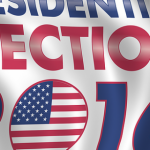Authoritarian Leaders Will Attack Those Who Seek to Protect Human Rights

By Blake O’Connor and Ugur Nedim
When Donald Trump signed an executive order banning nationals from seven predominantly Muslim countries from entering the United States, groups of lawyers banded together to protest against the unjust and divisive directive, vowing to fight for human rights regardless of the consequences.
More recently, US judge James Robard was vilified by the Trump administration for lifting the ‘Muslim ban’ after ruling that it goes beyond the president’s powers. Indeed, the president is reported to have said that Americans should hold the judge personally responsible if the United States is attacked.
The actions of the protesting US lawyers and judge Robard demonstrate that the legal profession plays an important role in keeping a check on abuses of power by the executive, and maintaining the separation of powers. Indeed, the current Chief Justice of NSW has called upon lawyers to take a pro-active role in publicising abuses of power and working to protect civil rights.
Lawyers persecuted for refusing to toe the government line
But while the US lawyers and judge Robard have not been arrested or removed from their positions, members of the legal profession elsewhere have been severely persecuted for standing up for human rights, the separation of powers and the rule of law.
Lessons from Nazi Germany
When Adolf Hitler became Chancellor of Germany in January 1933, he wasn’t about to let the judiciary get in the way of his aspirations for absolute power.
Hitler viewed an impartial judicial system as a threat to his dream of a ‘thousand year Reich’; a golden era of Aryan supremacy.
After gaining power, Hitler took it upon himself to ‘coordinate’ the judicial system in order to ensure it was in line with Nazi ideals and objectives.
No longer were courts independent, or a check against government abuses of power – they quickly became just another mechanism for Hitler to consolidate his dictatorship.
Lawyers and judges who were Jewish or did not toe the party line were quickly removed from their jobs.
Inside courtrooms, basic protections and legal principles were disregarded in favour of Nazi ‘common sense’ – with the motto of the courts becoming: “whatever is good for Germany is legal.”
The ‘People’s Court’ was established in 1942 for those accused of political crimes. It was a ‘kangaroo court’ where the outcome was nearly always a foregone conclusion. The Court was ruled with a heavy hand by the brutal President Roland Freisler, who acted as both interrogator and judge.
Criminal defence lawyers were strategically positioned away from their clients so that communication became impossible. Defence submissions were regularly cut-short and lawyers told to to “shut up” (in German, of course) when they tried to continue in their client’s defence.
Defendants were often forced to attend court wearing ill-fitting and humiliating clothing. One was forced to attend without his false teeth, and many were not provided with belts or suspenders to keep their pants up.
Freisler became famous for berating and belittling defendants, and their lawyers. He thundered at one defendant: “You dirty old man, why are you always fumbling with your trousers?” The hapless defendant was forced to hold onto his pants to prevent them falling down.
He regularly called defendants and their lawyers “pigs”, “murderers” or “rotten traitors” – even before evidence had been heard.
Those who were condemned to death were immediately taken outside and executed – there was no right of appeal.
Criminal defence lawyers who stood up against Freisler quickly found themselves out of a job, or even exiled or ‘eliminated’.
Some fled overseas before it was too late; others stayed, risking their lives in pursuit of justice.
The German experience should serve as a warning against allowing any single person to usurp the judiciary through decrees, threats and vilification.
Myanmar
And just last month in Myanmar, the legal adviser to Aung San Suu Kyi, the leader of Myanmar’s ruling National League for Democracy, was brutally executed as he walked out of Yangon airport.
Ko Ni, a prominent lawyer, was touted as “the face of democracy” and worked tirelessly to advance human rights in Myanmar, attracting disdain from conservatives.
Human rights organisation Amnesty International has called for an urgent review into Ko Ni’s murder, with deputy campaigns direct Josef Benedict stating:
“His death will send shock waves across the Human Rights Community in the country and beyond, and the authorities must send a clear message that such violence will not be tolerated and will not go unpunished”.
One hopes that the current attacks on the judiciary by authoritarian US leader Donald Trump will not affect the independence and impartiality of judges, or lead to a broader dilution of the separation of powers as occurred in pre-World War II Germany.






